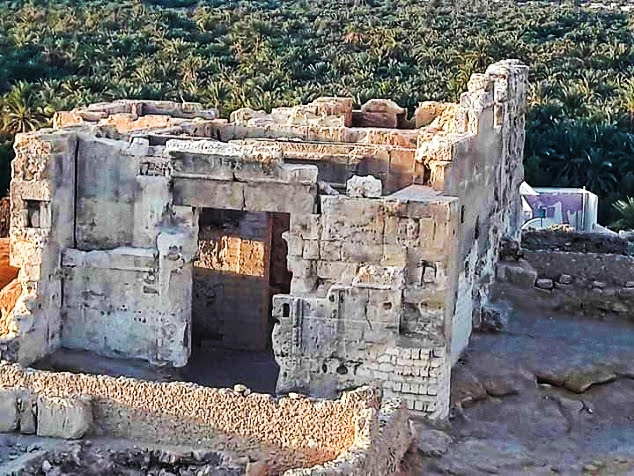
Temple of Amun
The Temple of Amun is considered one of the most important and oldest archaeological sites in Siwa Oasis. It is also called the Temple of Revelation because it is considered the site of the divine revelation. For this reason, people in the ancient world used to visit the temple and consult its priests.
The construction of the temple dates back to the era of the Egyptian 26th dynasty, specifically during the reign of King Amasis II, and the ruler of Siwa at that time was called “Sotikh Eridis”.In addition to houses for priests, servants, and guards, and inside the castle there is also a well dating back to the same era as the construction of the temple.
The Temple of Amun’s Revelation in Siwa was associated with several famous prophecies in the ancient world, the most important of which is the prophecy of the lost army of the Persian King “cambyses”, where Cambyses invaded Egypt in 525 BC, and the priests of Amun in Siwa predicted a resounding defeat for Cambyses, and when Cambyses heard this prophecy he ordered to send a military campaign To destroy the oasis and kill the Ammonians who are the inhabitants of Siwa Oasis. Historians such as Herodotus mention that the army moved from the city of Thebes, numbering 50,000 soldiers.and historians mention that the army arrived at the Kharga Oasis and then no news about it, and historians mention that during the army’s break for lunch a sandstorm buried the entire army under the sand, and thus the prophecy of the priests of Amun came true and the army of Cambyses was defeated, and the prophecy of Amun in Siwa became credible.
Alexander the Great’s visit to the Temple of Amun in Siwa is considered one of the most important things that immortalized the name of the oasis throughout history. Alexander visited the oasis in 331 BC in order to be crowned as the son of the god Amun. Historians mentioned that the visit was full of dangers and wonders. they also mentioned that Alexander was met with welcome and festivities, he was allowed to enter the room of the Holy of Holies alone to talk to God, or rather talk to the priest who is considered the voice of God, and it is said that the high priest called Alexander as a son of Amun.
While in the Holy of Holies, Alexander prophesied about the results of his future wars with the Persians, and the response from the priest was that he would win and rule the world. He passed away in Babylon in 323 BC before he met his mother and left a sprawling empire divided among his military leaders, and his tomb became a hidden secret until now.
All rights reserved to windows of siwa
